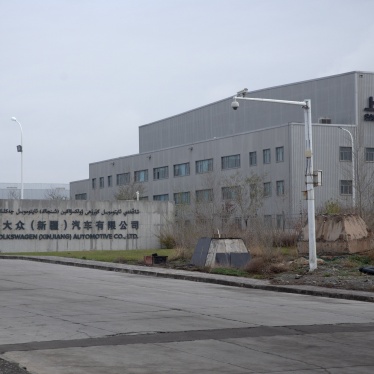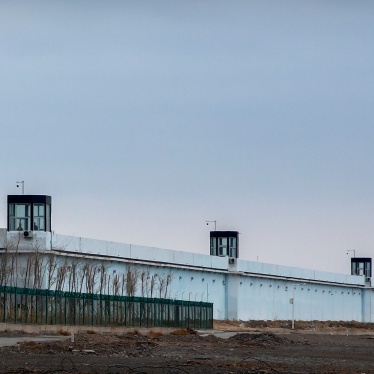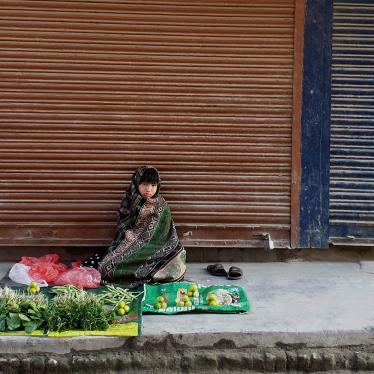Joint Letter
26 October 2020
We, the undersigned twelve human rights organizations, call on Thailand’s government to immediately end the harassment through the judicial system of journalist Suchanee Cloitre and to take concrete steps to protect journalists and human rights defenders from frivolous criminal proceedings. On 27 October, the Lopburi Court of Appeal will deliver the verdict in an appeal by Suchanee, who was convicted last year in a case initiated by Thammakaset Company Limited. The case underscores the need to repeal criminal defamation provisions in Thailand’s Criminal Code, which have frequently been used by businesses and powerful individuals to silence their critics.
The charges against Suchanee stem from a tweet concerning alleged labor rights violations at a chicken farm operated by Thammakaset in Lopburi Province. According to a complaint filed by workers with the National Human Rights Commission of Thailand, the company failed to pay minimum wage or overtime, did not provide adequate rest time and holidays, and confiscated identity documents, among other abuses. In 2016, the Lopburi Department of Labor Protection and Welfare ordered Thammakaset to pay THB 1.7 million in compensation to the workers, a penalty that was later upheld by Thailand’s Supreme Court.
At the time of her tweet in 2017, Suchanee was a journalist for Voice TV and reported on the allegations. In March 2019, Thammakaset filed a criminal complaint against Suchanee under sections 326 and 328 of the Criminal Code, concerning defamation and libel, respectively. In December 2019, the Lopburi Provincial Court convicted Suchanee under both provisions and sentenced her to non-probational two years’ imprisonment.
Suchanee is only one of many individuals targeted by Thammakaset. Since 2016, Thammakaset has initiated civil and criminal cases against 22 individuals and Voice TV for speaking out about the company’s alleged labor right violations. Among the accused are former Thammakaset employees, labor rights activists, an academic, women human rights defenders, and a former commissioner from the National Human Rights Commission of Thailand.
In March 2020, four United Nations Special Rapporteurs and the chairs of two UN Working Groups wrote to the Thai government to express concern about the “continued judicial harassment by Thammakaset Co. Ltd (Thammakaset), of human rights defenders, migrant workers, journalists and academics for denouncing exploitative working conditions of migrant workers”.
The Thai government’s National Action Plan on Business and Human Rights, adopted in 2019, set combatting “strategic lawsuits against public participation” (SLAPP) and preventing prosecution of human rights defenders as major priorities for the government. However, the government has failed to act decisively to achieve this objective. Earlier this month, the Thai government further undermined its commitment to ensuring a rights-respecting business environment by awarding a human rights prize to Mitr Phol Co. Ltd, a sugar company facing a class action lawsuit over alleged human rights abuses in Cambodia.
In December 2018, Thailand’s National Legislative Assembly amended the Criminal Procedure Code to include two provisions, sections 161/1 and 165/2, that could be used to dismiss criminal cases against those acting in the public interest. This reform was cited in the National Action Plan as evidence of the government’s attempt to prevent SLAPP lawsuits. However, to date, judges have refused to consistently apply these provisions in spurious criminal cases filed by Thammakaset and other private actors against journalists and human rights defenders.
While the proactive application by judges of sections 161/1 and 165/2 to dismiss abusive cases against human rights defenders and others acting in the public interest would be a positive step, more far-reaching reforms are necessary.
We call on the Thai government to decriminalize defamation, including by repealing or amending sections 326-333 of the Criminal Code and section 14 of the Computer Crimes Act. There is growing international consensus in favor of decriminalizing defamation, as recognized in the UN Human Rights Committee’s General Comment No. 34, which emphasized that custodial sentences are never an appropriate penalty for defamation.
We also call on the government to take immediate steps to end frivolous criminal proceedings against journalists, human rights defenders, and whistleblowers, including those accused by Thammakaset.
Signed:
- Amnesty International
- ARTICLE 19
- ASEAN Parliamentarians for Human Rights (APHR)
- The Asian Forum for Human Rights and development (FORUM-ASIA)
- Community Resource Center (CRC)
- Civil Rights Defenders
- Fortify Rights
- Human Rights Lawyers Association
- Human Rights Watch
- International Federation for Human Rights (FIDH)
- Thai Lawyers for Human Rights (TLHR)
- World Organisation against Torture (OMCT)









